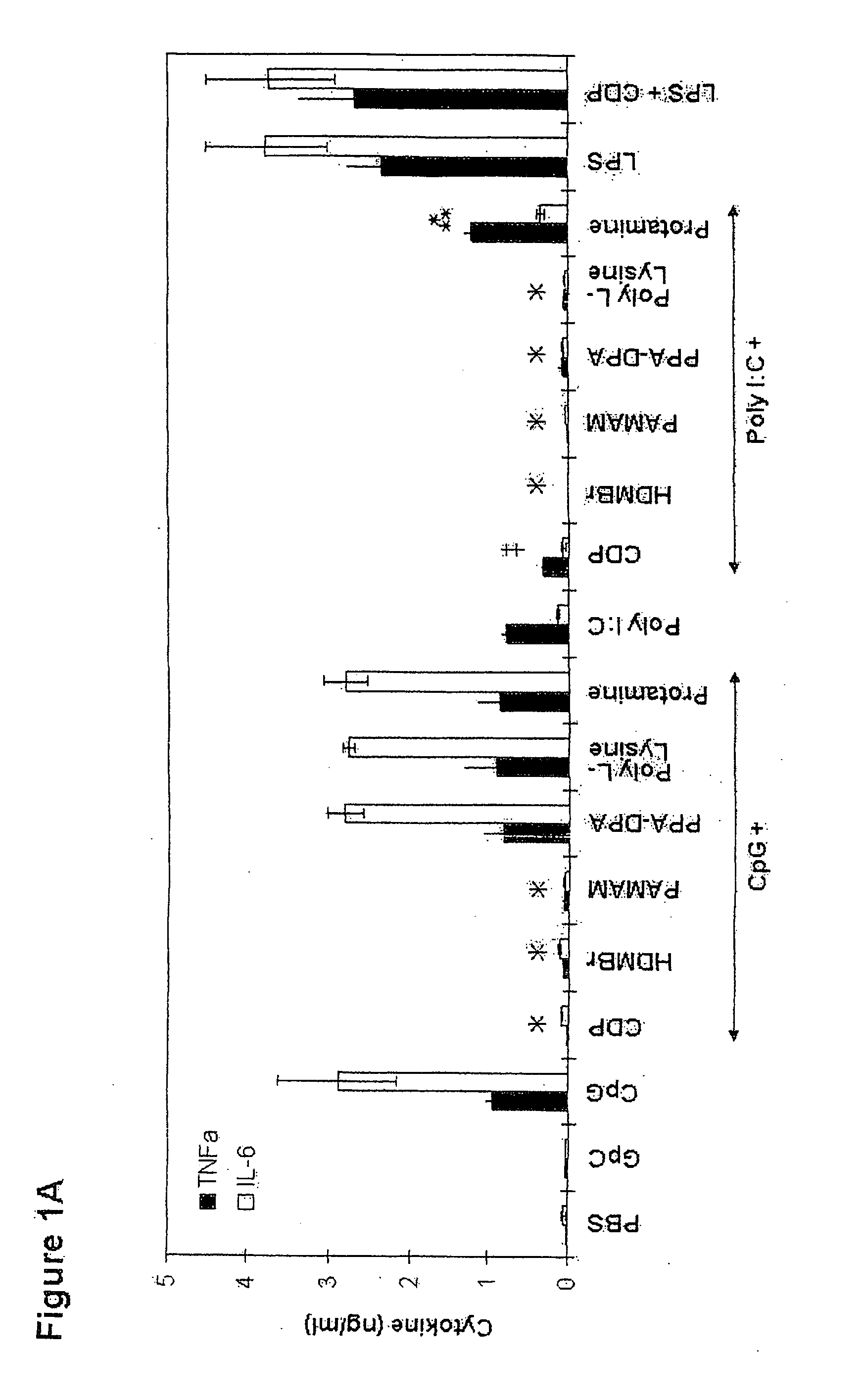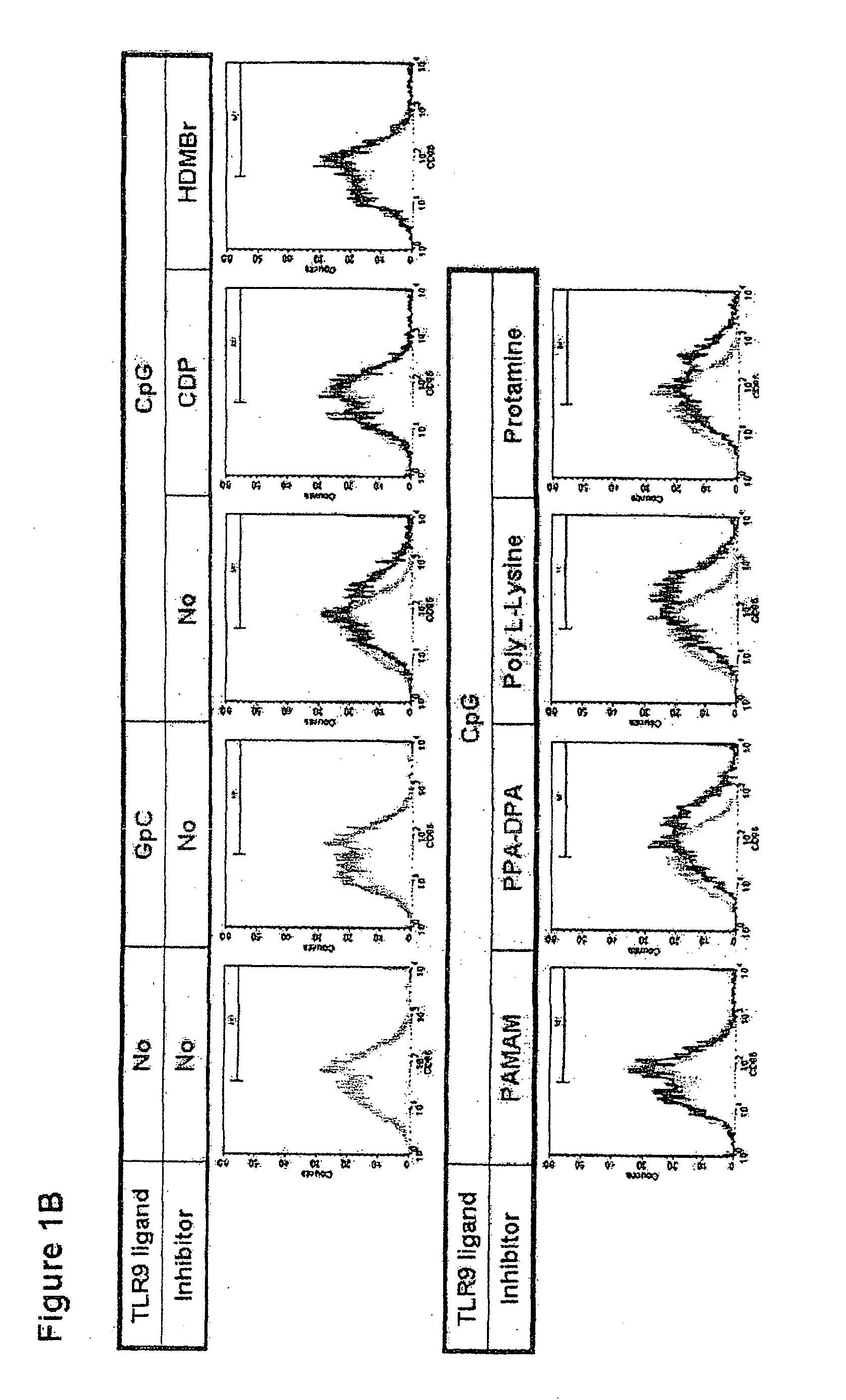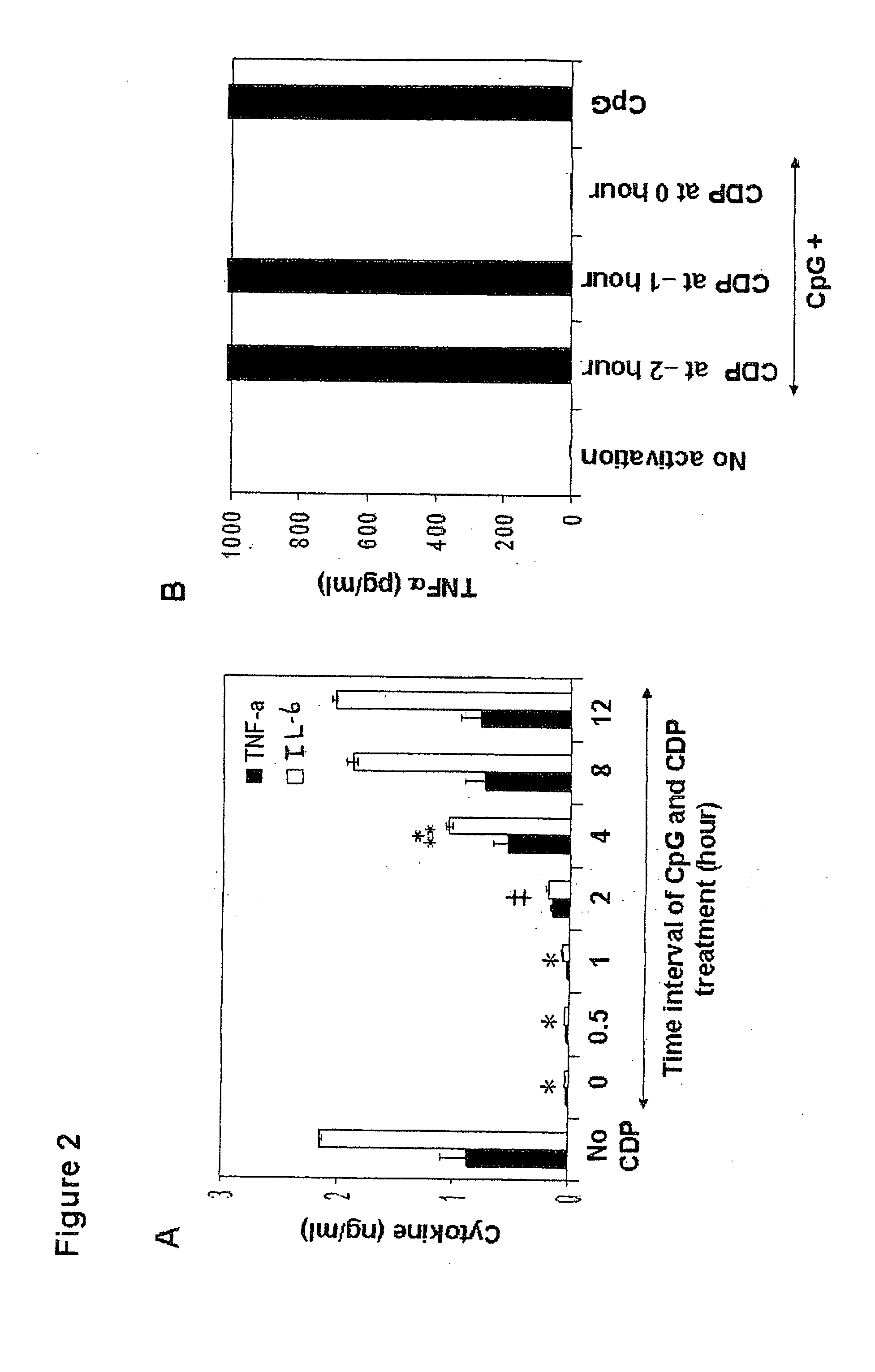Inhibition of endosomal toll-like receptor activation
a toll-like receptor and endosomal technology, applied in the field of pattern recognition receptors, can solve the problem of limiting the utility of inhibitors that target individual tlrs
- Summary
- Abstract
- Description
- Claims
- Application Information
AI Technical Summary
Benefits of technology
Problems solved by technology
Method used
Image
Examples
example
Experimental Details
[0039]Animal and cell line studies. 8-9 weeks old C57BL / 6 mice were purchased from the Jackson Laboratory (Bar Harbor, Me.). The murine macrophage cell line, Raw264.7 was obtained from ATCC (Manassas, Va.).
[0040]Cytokine production of murine macrophage. 1×106 Raw264.7 cells were cultured in complete medium including DMEM with 10% heat-inactivated. FBS, penicillin, streptomycin and L-glutamine (2 mM) (all from Invitrogen, Carlsbad, Calif.) in a 24-well culture plate at 37° C. in a humidified atmosphere with 5% CO2. To study TLR activation, the complete medium was supplemented with phosphorothioate B-type CpG DNA 1668 (5′-TCCATGACGTTCCTGATGCT-3′), a phosphorothioate GpC DNA 1720 (5′-TCCATGAGCTTCCTGATGCT-3′) as a control CpG DNA (both from IDT, Coralville, Iowa) or a mimetic of viral dsRNA, poly I:C (Amersham / GE Healthcare, Piscataway, N.J.) at various concentrations. Bacterial LPS serotype 026:B6 (100 ng / ml) (Sigma-Aldrich, Saint Louis, Mo.) activating TLR4 were us...
PUM
| Property | Measurement | Unit |
|---|---|---|
| concentration | aaaaa | aaaaa |
| concentration | aaaaa | aaaaa |
| concentration | aaaaa | aaaaa |
Abstract
Description
Claims
Application Information
 Login to View More
Login to View More - R&D
- Intellectual Property
- Life Sciences
- Materials
- Tech Scout
- Unparalleled Data Quality
- Higher Quality Content
- 60% Fewer Hallucinations
Browse by: Latest US Patents, China's latest patents, Technical Efficacy Thesaurus, Application Domain, Technology Topic, Popular Technical Reports.
© 2025 PatSnap. All rights reserved.Legal|Privacy policy|Modern Slavery Act Transparency Statement|Sitemap|About US| Contact US: help@patsnap.com



